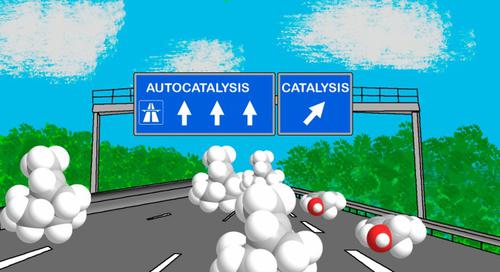Catalysis Letters ( IF 2.3 ) Pub Date : 2021-06-11 , DOI: 10.1007/s10562-021-03707-4 Peter J. Miedziak , Samuel Pattisson , Jennifer K. Edwards , Brian Tarbit , Stuart H. Taylor , Graham J. Hutchings

|
In this paper we aim to highlight the need to consider the possible role of autocatalysis in oxidation reactions when using molecular oxygen as the terminal oxidant. Oxygen in its ground state is a diradical, and depending on the reaction conditions, it can initiate oxidation through radical pathways through mechanisms which do not require the presence of a catalyst. Consequently, we contrast the oxidation of benzyl alcohol with oxidation of α-pinene. For benzyl alcohol oxidation the initial reaction is the oxidative dehydrogenation to form benzaldehyde, a non-radical process; but the subsequent over-oxidation to benzoic acid is a radical process. In this case the role of the autocatalysed reaction can be minimised. With α-pinene, the oxidation reaction is via radical pathways and now the autocatalysed reaction can be dominant and, indeed, can be the preferred pathway for the formation of high yields of the desired verbenone product.
Graphic Abstract
中文翻译:

自催化在烯丙基氧化中的重要作用
在本文中,我们旨在强调当使用分子氧作为末端氧化剂时,需要考虑自催化在氧化反应中的可能作用。处于基态的氧是双自由基,根据反应条件,它可以通过自由基途径通过不需要催化剂存在的机制引发氧化。因此,我们将苯甲醇的氧化与 α-蒎烯的氧化进行对比。对于苯甲醇氧化,初始反应是氧化脱氢形成苯甲醛,这是一个非自由基过程;但随后的过度氧化为苯甲酸是一个激进的过程。在这种情况下,自催化反应的作用可以最小化。对于 α-蒎烯,氧化反应是通过自由基途径进行的,现在自催化反应可能占主导地位,事实上,











































 京公网安备 11010802027423号
京公网安备 11010802027423号